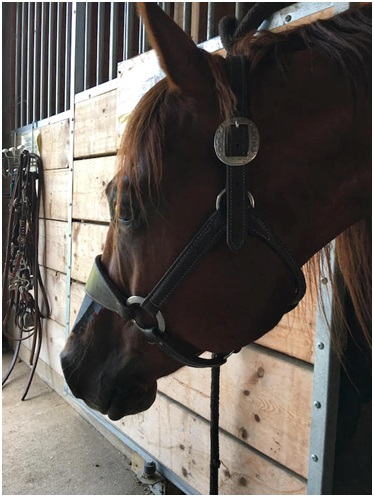The Health of Your Horse is in Your Hands
Jun 24th 2019
 As a horse owner, you have a very important role to fill. Not only are you tasked with the responsibility of providing food, water and shelter for your horse, but you are also their personal caretaker – you clean up after them and make sure they are groomed, loved, well-conditioned, and everything in between. If you think about it, the dynamic between you and your horse isn’t too different than that of a parent and their child. They are totally dependent on you, and it is your job to provide them with the care they need.
As a horse owner, you have a very important role to fill. Not only are you tasked with the responsibility of providing food, water and shelter for your horse, but you are also their personal caretaker – you clean up after them and make sure they are groomed, loved, well-conditioned, and everything in between. If you think about it, the dynamic between you and your horse isn’t too different than that of a parent and their child. They are totally dependent on you, and it is your job to provide them with the care they need.
No Two Horses Are Exactly Alike
When it comes to your horse’s health, knowing the warning signs of health issues and complications ought to be something that comes second nature as you start to become more familiar with your horse’s disposition and temperament. Because the truth is, no two horses are exactly alike, which means warning signs for underlying medical conditions may show themselves differently across different horses.
The top of your checklist should be related to your horse's breathing. One of the most frequently diagnosed conditions in sport horses is respiratory issues. Regardless of how small, respiratory issues can have a dramatic impact on your horse’s performance and health. Every cell in your horse’s body (including the muscles that power performance) requires oxygen; so, the more you demand on your horse, the harder his respiratory system works to keep those cells functioning. If an issue already exists, working a horse harder can hinder your horse's breathing and worsen the problem as a whole.
Signs of Respiratory Issues in Your Horse
Knowing the signs of respiratory issues is paramount to the well-being and performance capabilities of your horse:
- Are they frequently coughing and wheezing?
- Have you noticed any irregular nasal discharge?
- Are they pushing harder to perform at the same level of intensity as they were the week prior?
Asking yourself these questions can unveil obvious upper and/or lower airway respiratory issues in horses. But, not all signs of respiratory issues are so apparent. The less discernible clinical signs are what oftentimes accompany equine lower airway disease, making it challenging for veterinarians to diagnose. That said, knowing when to reach out to a clinical equine specialist should also fall under your job description as both horse owner and caregiver. After all, your horse is not all too different than a child in need of care and support – their health is in your hands.
Learn more about the warning signs of equine respiratory issues from Royal Veterinary College





